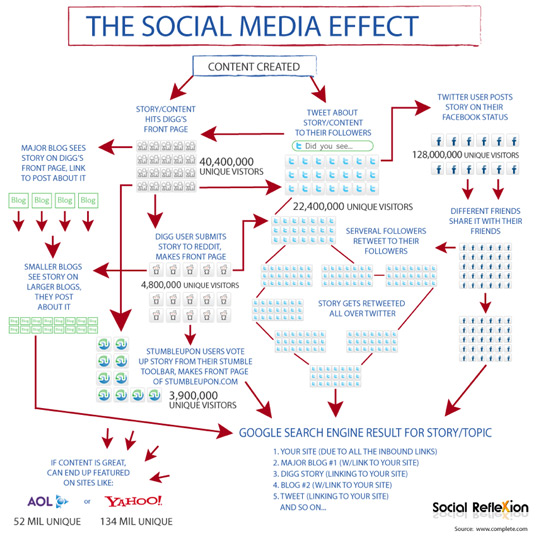Is the future of positive social approval changing?
 Almost two years ago, I have written about the development on Twitter that positive comments are not rated in a way they should (in my eyes). Those days I asked the question if the RT (Retweet) becomes a killer for the positive blog comment. Many people tapped my shoulder virtually and agreed with my observation.
Almost two years ago, I have written about the development on Twitter that positive comments are not rated in a way they should (in my eyes). Those days I asked the question if the RT (Retweet) becomes a killer for the positive blog comment. Many people tapped my shoulder virtually and agreed with my observation.
In some way the RT “button” is similar to Facebook’s LIKE button. It is a given opportunity to automize a process of agreement. And I am asking myself if Facebook’s LIKE button -launched one year ago- has the same “negative influence” on our positive comment on reviews in the future. Although it was meant to give its members an easy way to show approval for products, services, content and thoughts. I am coming back to these thoughts as I stumbled upon an interesting local study.
According to a recent study released by CityGrid Media, conducted by Harris interactive, that did some research on Web properties focused on local merchants, consumers prefer the “Like” button to writing a positive review for a local business. The study polled 1,006 adults in the U.S. over the phone between March 16 and 20.
OK, this is restricted to local only. But do we doubt that there is a difference in the regional and global attitude and behavior of humans? Especially as 52% of respondents said they visited more than two websites before visiting a local business, and Google plus Facebook were the most popular first sites those people accessed.
The study states that 20% of respondents say they show support for local businesses by clicking the “Like” button for that business on Facebook versus 13% who write reviews. The offline way is still the most successful method according to the study. The verbal way of telling a friend was the most popular method (75%). Not surprising as most of the consumers are still more listening than telling.
However this is just a local research, I asking myself if this s a good development, for us, for retailers, for brands and for the Social Web in general. Bearing in mind how much our written reaction on products and services influences our buying behavior, I think, it is not good if only the negative comments get (negative) credits while positive comments and reviews just find the automated, lazy “push a button” credit – no sentiment, no conversational reward, no tapping on the shoulder virtually…
How do you see this development?



 Every year, you create a quote that you use either to explain your business, to justify what you are doing or to establish some kind of heritage for those that you think are interested in what you are saying.
Every year, you create a quote that you use either to explain your business, to justify what you are doing or to establish some kind of heritage for those that you think are interested in what you are saying. The second annual “
The second annual “
 Facebook starts a new advertising format that focuses on the “check-ins” and “likes” of Facebook users, and thus their friends. The new commercial product uses the traditional business or product recommendations that can be seen in other ad formats of the company.
Facebook starts a new advertising format that focuses on the “check-ins” and “likes” of Facebook users, and thus their friends. The new commercial product uses the traditional business or product recommendations that can be seen in other ad formats of the company. About two years ago, I have written about the World Economic Forum and your open social web-strategy. How do you think about your approach in 2008 today?
About two years ago, I have written about the World Economic Forum and your open social web-strategy. How do you think about your approach in 2008 today? When I first came across the KLM Surprise idea, I thought “cool customer service”, “very modern approach” and “nice use of a Social Media campaign”. It seems KLM engages in how to make their clients happy, how to understand personalized customer service of the future and how to use social media to reach out to their clients one step ahead.
When I first came across the KLM Surprise idea, I thought “cool customer service”, “very modern approach” and “nice use of a Social Media campaign”. It seems KLM engages in how to make their clients happy, how to understand personalized customer service of the future and how to use social media to reach out to their clients one step ahead. Das Marketing-Magazin
Das Marketing-Magazin